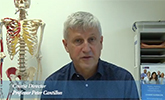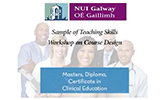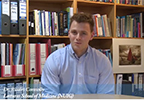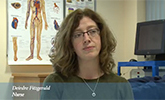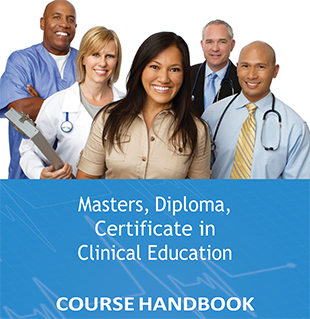-
Courses

Courses
Choosing a course is one of the most important decisions you'll ever make! View our courses and see what our students and lecturers have to say about the courses you are interested in at the links below.
-
University Life

University Life
Each year more than 4,000 choose University of Galway as their University of choice. Find out what life at University of Galway is all about here.
-
About University of Galway

About University of Galway
Since 1845, University of Galway has been sharing the highest quality teaching and research with Ireland and the world. Find out what makes our University so special – from our distinguished history to the latest news and campus developments.
-
Colleges & Schools

Colleges & Schools
University of Galway has earned international recognition as a research-led university with a commitment to top quality teaching across a range of key areas of expertise.
-
Research & Innovation

Research & Innovation
University of Galway’s vibrant research community take on some of the most pressing challenges of our times.
-
Business & Industry

Guiding Breakthrough Research at University of Galway
We explore and facilitate commercial opportunities for the research community at University of Galway, as well as facilitating industry partnership.
-
Alumni & Friends

Alumni & Friends
There are 128,000 University of Galway alumni worldwide. Stay connected to your alumni community! Join our social networks and update your details online.
-
Community Engagement

Community Engagement
At University of Galway, we believe that the best learning takes place when you apply what you learn in a real world context. That's why many of our courses include work placements or community projects.
Clinical Education (Master of, PDip)

Course Overview
The Diploma and Masters in Clinical Education have been designed to equip all health professionals, regardless of disciplinary background, with the knowledge and skills required to be effective clinical educators. When the courses commenced in 2005 they were the first multidisciplinary programmes for clinical education in Ireland, and among the first worldwide. Over the intervening number of years, the programmes have grown, developed and evolved to continue to help participants to become effective clinical supervisors and motivators of student learning in various roles, disciplines and settings, both nationally and internationally. The Diploma and Masters programmes are delivered entirely online, thus making it possible for applicants in full-time work, based in Ireland or abroad, to participate.
The Diploma Course:
The Diploma in Clinical Education is a Level 8 course designed for health professionals who are interested in devoting a dedicating part of their working life to teaching and learning. The diploma qualification requires you to complete six modules comprising four core modules which cover the essence of clinical education and two optional modules that you can select from a suite of seven optional modules. The diploma may be completed over one academic year from September to June, or over two academic years, whereby students take three modules in the first year and three modules in the second year.
The Masters Course:
The Masters in Clinical Education is a one-year Level 9 course designed to support health professionals who are interested in taking on leadership or scholarship roles within health professions education. NB. Applicants need to complete the Diploma in Clinical Education course before being deemed eligible to apply for the Masters course. Alternatively applicants can present evidence or recognition of prior learning of having achieved a graduate diploma level qualification in a programme dedicated to health professions education, taken elsewhere.
(Note: the programs have been designed to fit in with the working and home life of candidates who are in full-time employment)
Continuous Professional Development (CPD)
Students are provided with a certificate of participation for course component modules which they can present to their individual professional training and regulatory bodies as proof of engagement with external Continuous Professional Development.
For more information on the course content download our Clinical Education handbook.
What makes this course unique ...
- We were one of the first Masters in Clinical Education established anywhere in the world and are focused largely on supporting health professional educators who teach in clinical settings.
- Whilst our courses are delivered wholly online, we are unique in offering teaching skills workshops, (also online) develop teaching skills, not just educational knowledge.
- Diploma and Masters courses in clinical education have provided a vital step in the advancement of many of our past students into careers as senior clinician educators, academics and educational leaders in their professional disciplines
Scholarships available
Find out about our Postgraduate Scholarships here.
The Diploma and Masters in Clinical Education are long established and popular courses in health professions education. We have ceased to offer the Certificate in Clinical Education option because all of our applicants change to the full Diploma once the programme had started. We have therefore ceased taking applications for the certificate program. Thus, please ignore any reference to a Certificate in Clinical Education in the hard-copy or soft-copy prospectus.
Applications and Selections
Applications are made online via the University of Galway Postgraduate Applications System.
Applicants: health professionals involved formally or informally in clinical education.
In order for applications to be considered valid for consideration all requested supporting documentation must be provided.
Applications are welcomed as an open call, with suitable applicants being offered a position on the programme in order of receipt of complete application within the limits of programme capacity. Suitability is determined based on ability/opportunity to apply learning to your daily work, relevant experience, and academic record.
Please note; only complete applications, where this programme is your primary course applied for, will be made available to the programme team for review
Who Teaches this Course
Professor Timothy Emlyn-Jones
Dr Peter Hayes
Ms Pauline May
Mr Terri McVeigh
Ms Sally Whelan
Dr Catherine Houghton
Mr Ben Meehan
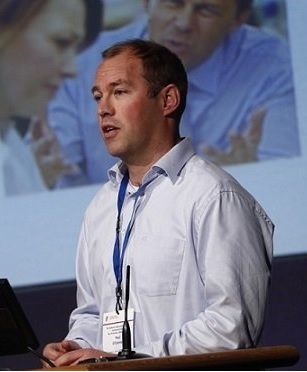
Discipline of General Practice
University of Galway
1 Distillery Road
Galway
View Profile
Requirements and Assessment
- All applicants should be involved either formally or informally in teaching activity.
- All applicants should have a prior health professional degree or qualification.
The assessment strategies for these programmes are designed to ensure that all of the assessment methods used leads to educational designs or tools that are of direct benefit to each student. In practice this means that each student adapts the assignment task/theme to one that suits his/her clinical context and work as a teacher. Previous students have used this approach to develop a range of teaching strategies, lesson plans and teaching tools that they continue to use and have disseminated amongst their own communities.
Students are encouraged to reflect on their educational activities, both as a teacher and a learner, and engage throughout the programmes in compiling a reflective teaching portfolio. Participation in peer observation of learning and teaching is conducted throughout the postgraduate diploma, and a process of peer-learner and facilitator feedback forms part of the face-to-face learning for students of the master's programme.
Key Facts
Entry Requirements
Applicants must be registered healthcare professionals with at least two years’ post-registration experience and be actively involved in clinical education. General computer literacy is essential as parts of the programme are delivered via distance-learning. In addition, for the Master’s, at least 60% in the PDip in Clinical Education or equivalent is required. Selection is based on ability/opportunity to apply learning to your daily work, relevant experience and academic record.
Additional Requirements
Recognition of Prior Learning (RPL)
Duration
Masters; 1 year (must have previously completed PDip or equivalent), full-time
PDip: 1 year, 2 years, part-time
Professional Credit Awards: 6 wks varying start points in academic year
Next start date
September 2024
A Level Grades ()
Average intake
Masters: 10 PDip | Stand-alone module, combined: 40
QQI/FET FETAC Entry Routes
NFQ level
Mode of study
ECTS weighting
Masters 150 ECTS; PDip 90 ECTS
Award
CAO
Course code
MHSC-CED; PGD-CED
Course Outline
The courses are delivered mostly by distance learning, with some face-to-face workshops in Galway. The combination of distance learning and face-to-face workshops allows you to engage in learning at a time and place that suits your lifestyle. All programmes commence with a two-day introductory ‘Summer School’ in Galway in early September. Additional face-to-face sessions occur as follows:
- PDip: eight days (two consecutive weekdays in September and six Saturdays between October and May).
- Masters: in addition to the Diploma days, ten days (two consecutive weekdays in each of Sept., Oct., Nov., Feb., and March).
Module details for 1MCT1 (Masters)
Module details for 1MCT2 (PDip) full-time
Module details for 1MCT3 (PDip) part-time
Curriculum Information
Curriculum information relates to the current academic year (in most cases).Course and module offerings and details may be subject to change.
Glossary of Terms
- Credits
- You must earn a defined number of credits (aka ECTS) to complete each year of your course. You do this by taking all of its required modules as well as the correct number of optional modules to obtain that year's total number of credits.
- Module
- An examinable portion of a subject or course, for which you attend lectures and/or tutorials and carry out assignments. E.g. Algebra and Calculus could be modules within the subject Mathematics. Each module has a unique module code eg. MA140.
- Optional
- A module you may choose to study.
- Required
- A module that you must study if you choose this course (or subject).
- Semester
- Most courses have 2 semesters (aka terms) per year.
Year 1 (60 Credits)
RequiredMD130: Evidence Based Education
MD130: Evidence Based Education
Semester 1 and Semester 2 | Credits: 5
This module is designed to build on knowledge and skills acquired during the Postgraduate Diploma in Clinical Teaching, with primary focus on accurate searching, robust appraisal, meaningful data synthesis and the construction of an effective literature review.
(Language of instruction: English)
Learning Outcomes
- On successful completion of this module you should be able to: ▪ Demonstrate a sound knowledge of the different electronic and paper based evidence based education information resources available. ▪ Demonstrate proficiency in turning research questions into effective search strategies. ▪ Competently appraise quantitative and qualitative research literature incorporating the commoner research designs. ▪ Analyse and synthesise information from multiple sources to draw valid inferences about the state of knowledge in a particular field. ▪ Construct an effective literature review for a thesis or research paper.
Assessments
- Continuous Assessment (100%)
Teachers
The above information outlines module MD130: "Evidence Based Education" and is valid from 2018 onwards.Note: Module offerings and details may be subject to change.
RequiredMD132: Educational Research
MD132: Educational Research
Semester 1 and Semester 2 | Credits: 15
The purpose of this module is to enhance your knowledge of research and to prepare you for the rather different challenges of educational research design. Given the nature of the module it requires participation in workshops and seminars at NUI Galway during semesters 1 and 2. We want to reinforce self-directed learning with a lot more interactive teaching and learning opportunities.
(Language of instruction: English)
Learning Outcomes
- On successful completion of this module you should be able to: ▪ explain the similarities and differences between educational and healthcare research ▪ describe educational research paradigms, strategies and methods ▪ prepare a robust educational research proposal using quantitative, qualitative or mixed methods ▪ implement an educational research design within a tight timetable ▪ analyse quantitative and/or qualitative data using appropriate techniques ▪ report and present research findings in the form of a research paper. ▪ enter, manage and analyse data using SpSS and NVivo as appropriate ▪ show due regard to research ethics in all stages of the process ▪ critically reflect on y
Assessments
- Continuous Assessment (100%)
Teachers
- JOSEPHINE BOLAND 🖂
- MARY BYRNE 🖂
- PETER CANTILLON 🖂
- PÁDRAIG MAC NEELA 🖂
- CATHERINE HOUGHTON 🖂
- LOUISE CAMPBELL 🖂
- MARY O'REILLY DE BRÚN 🖂
- PAUL O'CONNOR 🖂
- AOIFE JACKSON 🖂
Note: Module offerings and details may be subject to change.
RequiredMD133: Clinical Teaching Research Dissertation
MD133: Clinical Teaching Research Dissertation
15 months long | Credits: 40
This module represents the capstone for the Masters in Clinical Education programme. It offers you the opportunity to apply knowledge and skills gained on this programme – and on the postgraduate Diploma in Clinical Education – to the design and execution of a worthy piece of educational research. As an experienced professional you identify a topic for research, or select one that aligns with the research interests of the NUIG School of Medicine, that has the potential to make a meaningful contribution to the health education literature and/or serve as a means of advancing educational policy and/or practice in your professional context. The programme team will support you in the production of a research report that offers potential for publication and/or offer opportunities for dissemination within your own professional field. The module aims to develop your capacity for undertaking independent educational research which will contribute to your continuing professional development and can ultimately enhance the quality of education within the clinical or wider health sector.
(Language of instruction: English)
Learning Outcomes
- On successful completion of this module you should be able to: 1. Carry out investigative research and arrive at valid results/findings 2. Undertake independent work by managing a piece of research or related work with only minimal guidance 3. Integrate and apply what has been learned on a other MCE modules and on your qualifying postgraduate programme 4. Assess the value and limitations of information in deciding on future courses of action 5. Approach real educational problems at a strategic level 6. Demonstrate report-writing skills in the final thesis.
Assessments
- Research (100%)
Teachers
The above information outlines module MD133: "Clinical Teaching Research Dissertation" and is valid from 2018 onwards.Note: Module offerings and details may be subject to change.
Why Choose This Course?
Career Opportunities
Educational benefits
This course will help you to design, implement and evaluate effective learning in your clinical discipline. As part of the programme you will study:
- teaching small and large groups
- giving constructive feedback
- using questions appropriately
- assessment design and implementation
- individual and group supervision techniques
- designing and managing effective continuing professional development
- self-evaluation
The course is founded on a practical application of the essential psychological and sociological theories in education and is also suitable for those who teach in classroom or simulated settings.
Career opportunities
Our clinical education focus leads to major changes in how you will be able to facilitate the learning and development of your students in clinical settings. You will know more about how learners learn, how to create safe and effective learning environments, how to assess learners and how to support their professional development. These courses will help you create new pedagogical approaches and improve the clinical education experience for learners. The Masters Programme represents an opportunity to develop an area of specialist expertise, as well as answer research questions of importance to Irish healthcare education. Our unique 4,000-word 'ready-for-publication' thesis design increases the likelihood of publication in a peer-reviewed journal.
Personal and professional development
The genuinely multidisciplinary nature of the programme allows students to cultivate educational liaisons with other healthcare practitioners involved in education, both within their own professional discipline and other disciplines. Students enjoy expert leadership and mentorship from tutors with experience in diverse professional and educational fields throughout the programmes, with the possibility of engagement with a wide-reaching programme alumni network beyond graduation.
Who’s Suited to This Course
Learning Outcomes
Transferable Skills Employers Value
Work Placement
Study Abroad
Related Student Organisations
Course Fees
Fees: EU
Fees: Tuition
Fees: Student levy
Fees: Non EU
Post Graduate Diploma (Full-Time): EU 6,000 p.a. 2024/25 and Non EU: 9,500 p.a. 2024/25
Post Graduate Diploma (Part-Time): EU 3,000 p.a. 2024/25 and Non EU: 4,250 p.a. 2024/25
Student levy €140 (€70 Part-Time) —payable by all students and is not covered by SUSI. Further detail here.
Find out More
If you would like more information about the clinical education programmes, or have any queries, please feel free to contact the programme co-ordinator;
Dr Aoife Jackson
T: +353 91 495 301
E: postgradhealth@universityofgalway.ie








